Bahman Farmanara
출생 : 1942-01-23, Tehran, Iran
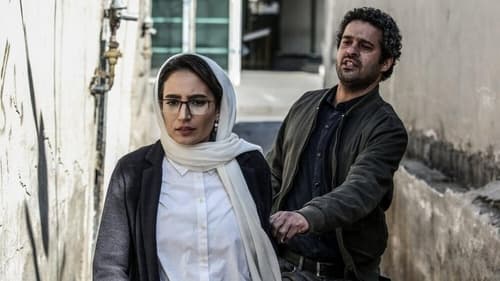
A young homeless girl supports herself as a surrogate mother for money. A human rights attorney tries to help her change her life, but ithe challenges seem insurmountable. This is a rarely seen side of Iranian society.

Writer
Bahram Farzaneh is a writer who has long been unable to write a story. Suddenly, due to a car accident, a song is repeated in his mind that brings him to dance. The same thing stirred up the passion for writing.

Director
Bahram Farzaneh is a writer who has long been unable to write a story. Suddenly, due to a car accident, a song is repeated in his mind that brings him to dance. The same thing stirred up the passion for writing.
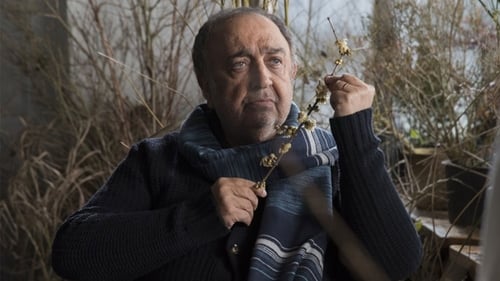
Writer
Taher Mohebi is a well-known writer who, after witnessing a violent murder, breaks down and spends three years in a mental institution. After release he is told that things are just as they were before, but his relentless hallucinations make him want to return to the institution.

Director
Taher Mohebi is a well-known writer who, after witnessing a violent murder, breaks down and spends three years in a mental institution. After release he is told that things are just as they were before, but his relentless hallucinations make him want to return to the institution.

Taher Mohebi is a well-known writer who, after witnessing a violent murder, breaks down and spends three years in a mental institution. After release he is told that things are just as they were before, but his relentless hallucinations make him want to return to the institution.

A Documentary about New Wave movement in Iranian cinema.

Self
This movie is a documentary about Parviz Yahaghi, one of the most famous composers and musicians in Iran, who became isolated after the revolution due to the conditions in Iran. Born in 1935, Parviz Yahaghi, was a regular on the radio show 'Golha' from a young age. Several pre-revolutionary singers such as Mahasti, Homeira and Marzieh became famous for his songs, and with the sound of his violin, many fell in love with Iranian music. He became isolated after the victory of the revolution, although his music was never isolated. Parviz Yahaghi died in February of 2007. The film looks at his life in his own words and in the last years of his life.

Producer
This movie is a documentary about Parviz Yahaghi, one of the most famous composers and musicians in Iran, who became isolated after the revolution due to the conditions in Iran. Born in 1935, Parviz Yahaghi, was a regular on the radio show 'Golha' from a young age. Several pre-revolutionary singers such as Mahasti, Homeira and Marzieh became famous for his songs, and with the sound of his violin, many fell in love with Iranian music. He became isolated after the victory of the revolution, although his music was never isolated. Parviz Yahaghi died in February of 2007. The film looks at his life in his own words and in the last years of his life.

Director
This movie is a documentary about Parviz Yahaghi, one of the most famous composers and musicians in Iran, who became isolated after the revolution due to the conditions in Iran. Born in 1935, Parviz Yahaghi, was a regular on the radio show 'Golha' from a young age. Several pre-revolutionary singers such as Mahasti, Homeira and Marzieh became famous for his songs, and with the sound of his violin, many fell in love with Iranian music. He became isolated after the victory of the revolution, although his music was never isolated. Parviz Yahaghi died in February of 2007. The film looks at his life in his own words and in the last years of his life.

Writer
An artist's life who lives in a village of Kurdistan,Iran has been changed because his nephew enters to the village.

Director
An artist's life who lives in a village of Kurdistan,Iran has been changed because his nephew enters to the village.

Screenplay
Persian Carpet is an omnibus film produced by Iran's National Carpet Center and Farabi Cinema Foundation where 15 renowned Iranian directors contributed films on the subject of Persian carpet. Carpets are the reflection of the cultural and historical identity of Iran.

Director
Persian Carpet is an omnibus film produced by Iran's National Carpet Center and Farabi Cinema Foundation where 15 renowned Iranian directors contributed films on the subject of Persian carpet. Carpets are the reflection of the cultural and historical identity of Iran.

himself
This documentary looks at different aspects of the life of Bahman Farmanara, the well known Iranian film director and producer.

Director
Two old writers who one of them is returned to Iran after 38 years because of his son's suicide, are going on a trip to the grave of that son.
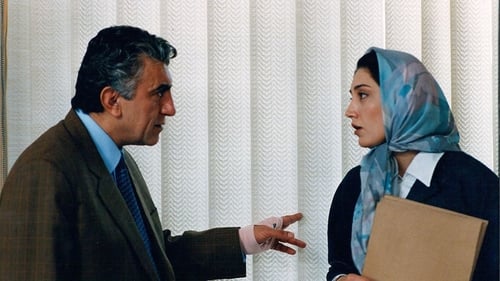
Producer
Director Bahman Farmanara's second film following a 20-year exile from his native Iran depicts the spiritual crisis of a middle-aged man. In the film's dreamlike opening scene, Dr. Reza Sepidbakht (Reza Kianian), a well-off Tehran gynecologist, thinks he runs over an angel while driving home at night with a call girl. The next morning at the hospital where he works, he is shown a comatose boy who is famous for having memorized the entire Koran. These two events cause him to rethink his cynical outlook on life and his relationships with his elderly father, wayward son, and the women he has mistreated since becoming estranged from his wife. When the boy awakens from his coma, Dr. Sepidbakht begins to look to him for answers.

Writer
Director Bahman Farmanara's second film following a 20-year exile from his native Iran depicts the spiritual crisis of a middle-aged man. In the film's dreamlike opening scene, Dr. Reza Sepidbakht (Reza Kianian), a well-off Tehran gynecologist, thinks he runs over an angel while driving home at night with a call girl. The next morning at the hospital where he works, he is shown a comatose boy who is famous for having memorized the entire Koran. These two events cause him to rethink his cynical outlook on life and his relationships with his elderly father, wayward son, and the women he has mistreated since becoming estranged from his wife. When the boy awakens from his coma, Dr. Sepidbakht begins to look to him for answers.

Director
Director Bahman Farmanara's second film following a 20-year exile from his native Iran depicts the spiritual crisis of a middle-aged man. In the film's dreamlike opening scene, Dr. Reza Sepidbakht (Reza Kianian), a well-off Tehran gynecologist, thinks he runs over an angel while driving home at night with a call girl. The next morning at the hospital where he works, he is shown a comatose boy who is famous for having memorized the entire Koran. These two events cause him to rethink his cynical outlook on life and his relationships with his elderly father, wayward son, and the women he has mistreated since becoming estranged from his wife. When the boy awakens from his coma, Dr. Sepidbakht begins to look to him for answers.

Bahman Farjami
Death surrounds Bahman, a director who hasn't made a film in 24 years (he can't get past the censors). He's working on a documentary, for Japanese TV, on Iranian burial practices. On the anniversary of his wife's death, a hitchhiker tells him a story of spousal abuse and infant mortality, he discovers that someone has been buried in his plot next to his wife, and he needs the help of his attorney, a well-connected fixer. He dreams of death, even as he investigates it for his film. His niece's husband, a well-known writer, fails to return home; he searches hospitals for an unclaimed body. His heart disease is flaring up. Is he prepared for death? Is that all that's left?

Writer
Death surrounds Bahman, a director who hasn't made a film in 24 years (he can't get past the censors). He's working on a documentary, for Japanese TV, on Iranian burial practices. On the anniversary of his wife's death, a hitchhiker tells him a story of spousal abuse and infant mortality, he discovers that someone has been buried in his plot next to his wife, and he needs the help of his attorney, a well-connected fixer. He dreams of death, even as he investigates it for his film. His niece's husband, a well-known writer, fails to return home; he searches hospitals for an unclaimed body. His heart disease is flaring up. Is he prepared for death? Is that all that's left?

Director
Death surrounds Bahman, a director who hasn't made a film in 24 years (he can't get past the censors). He's working on a documentary, for Japanese TV, on Iranian burial practices. On the anniversary of his wife's death, a hitchhiker tells him a story of spousal abuse and infant mortality, he discovers that someone has been buried in his plot next to his wife, and he needs the help of his attorney, a well-connected fixer. He dreams of death, even as he investigates it for his film. His niece's husband, a well-known writer, fails to return home; he searches hospitals for an unclaimed body. His heart disease is flaring up. Is he prepared for death? Is that all that's left?

Producer
Based on a short story by Houshang Golshiri, this film centers on mysterious and chilling events that take place in a village. A group of superstitious inhabitants have erected a scarecrow for protection but soon find themselves terrorized by it. Made at the end of the Shah’s reign, the film offers a metaphorical reflection on power relations — how people create their own idols who turn around to terrorize them.

Writer
Based on a short story by Houshang Golshiri, this film centers on mysterious and chilling events that take place in a village. A group of superstitious inhabitants have erected a scarecrow for protection but soon find themselves terrorized by it. Made at the end of the Shah’s reign, the film offers a metaphorical reflection on power relations — how people create their own idols who turn around to terrorize them.

Director
Based on a short story by Houshang Golshiri, this film centers on mysterious and chilling events that take place in a village. A group of superstitious inhabitants have erected a scarecrow for protection but soon find themselves terrorized by it. Made at the end of the Shah’s reign, the film offers a metaphorical reflection on power relations — how people create their own idols who turn around to terrorize them.

Producer
Parvaneh, a famous singer and movie star, has an affair with a married man. A student named Baabak, who suffers from leukaemia, falls in love with Parvaneh. They have a good time together for a while, until she hears about Baabak's disease and decides to send him abroad for medical treatment.

Producer
When Mr. Esalat is looking for a topic for his TV show, he notices an advertisement in the newspaper about a missing girl. The picture of the missing girl is very familiar to him and he tries to remember where he saw it before. His wife Asieh is a teacher and at home she writes his mother's diary. When he searches for the address in that advertisement, he finds that it belongs to 30 years ago. Asieh is becoming interested in the missing girl too.
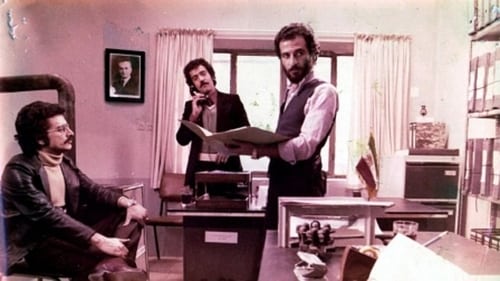
Executive Producer
이 영화는 뇌물을 받는 사람들을 조사하러 다니는 세금징수관의 삶을 다룬다. 그에게는 가정에 문제가 있지만 손을 쓰지도 못하는 신세. 얼마 후 그의 아내가 자살을 시도하는데...
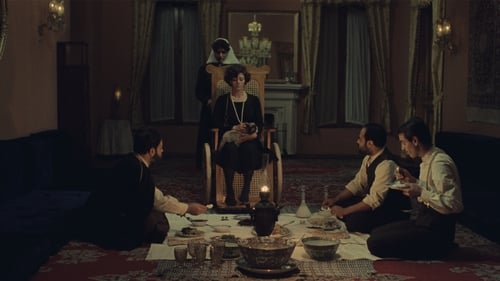
Producer
The first lady of a noble house has died and now there is conflict between the remainders for taking over her heritage.
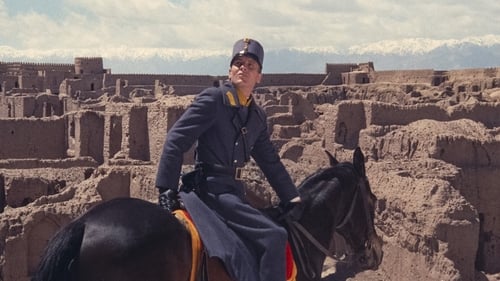
Producer
중위 지오반니 드로고는 매서운 유목민인 타타르인의 공격이 임박한 오래된 바스티아니 국경 요새로 배치되어 오게 된다.

Producer
Prince Ehtejab, one of the last remaining heirs of the Qajar royal family, is suffering from tuberculosis, which he knows is fatal. He spends his last days alone in the magnificent rooms of his wintry palace, from where he recollects the glory days of his ancestors as well as days of degradation. Among the latter are the gruesome manner in which his cruel grandfather murdered his mother and brother, and the way that he himself caused the death of his wife.

Writer
Prince Ehtejab, one of the last remaining heirs of the Qajar royal family, is suffering from tuberculosis, which he knows is fatal. He spends his last days alone in the magnificent rooms of his wintry palace, from where he recollects the glory days of his ancestors as well as days of degradation. Among the latter are the gruesome manner in which his cruel grandfather murdered his mother and brother, and the way that he himself caused the death of his wife.

Director
Prince Ehtejab, one of the last remaining heirs of the Qajar royal family, is suffering from tuberculosis, which he knows is fatal. He spends his last days alone in the magnificent rooms of his wintry palace, from where he recollects the glory days of his ancestors as well as days of degradation. Among the latter are the gruesome manner in which his cruel grandfather murdered his mother and brother, and the way that he himself caused the death of his wife.

A director of a television series on the history of cinema, who has been grappling with the screenplay of his first feature film, receives an assignment to oversee the installation of a television relay station in a remote region of Zahedan province, near the Afghanistan border. He has already hired Turkoman tribespeople for his film and selected his filming location. Meanwhile his wife, who is working on her Ph.D. dissertation about the Mongol invasion of Iran, attempts to dissuade him from accepting the assignment. One night, while working on his history of the cinema series, the director fantasizes a diagetic world that consists of clever juxtapositions of his different worlds: the history of cinema, the history of the mongol invasion, his own film idea and his imminent assignment to the desert.

Director































